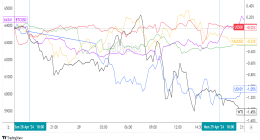IF YOU use Apple Pay on your iPhone, you may be spending more money than you realize, according to experts.
People who use mobile payment applications face higher odds of overspending, a new study conducted by researchers from the University of Puget Sound in Washington found.
The study, which was published in the journal Computers in Human Behavior, looked at the spending habits of 21,457 American adults.
Around 37 percent of the group reported that they use mobile payment applications, like Apple Pay or Google Pay.
Members of that group were 34 percent more likely to spend more than their annual income, the study found.
Those participants were also 31 percent more likely to have difficulties in paying bills and expenses.
“Overspending via mobile payment may be linked to the intangible nature of the transaction, coupled with its convenience, which allows the user to detach from the transaction,” researchers said.
Over 48 percent of iOS users worldwide activated Apple Pay in 2019 – that’s around 441 million people, according to Statista.
And in 2020, 32 percent of all online purchases around the world were completed using mobile payment apps.
The growing prevalence of these technologies got the team of researchers interested in how they might affect people’s spending habits.
Most read in Tech
“Despite the advantages of mobile payment use, there has been little research on the implications of how mobile payment use influences consumers’ financial behaviors,” the researchers said.
Overall, the study found links between mobile payment users and a higher likelihood of overspending, struggling with money management, and having poor credit card habits.
“The likelihood of spending more than income, having difficulties covering expenses or paying bills on time, paying a minimum payment, a late fee or over the limit fee in using credit cards were significantly higher for mobile payment users,” the study’s authors said.
One potential reason for this, according to the researchers, is that mobile payments are convenient and may enable overspending.
Another theory is that mobile payments, like credit cards, let people avoid the pain of spending physical cash.
“Mobile payments user may have an even stronger effect of convenience [than credit cards] on overspending behaviors,” the researchers added.
In the future, the team hopes that these findings will be used to help reduce the risk of people overspending via technology and personal devices.


“The findings have practical implications for service providers in the mobile payment industry on how to design and develop interventions to reduce the unfavorable effects of mobile payment use among consumers,” the team said.
In the meantime, if you want to reduce your risk of overspending, then disabling your mobile payment app might help drastically.
We pay for your stories!
Do you have a story for The US Sun team?








